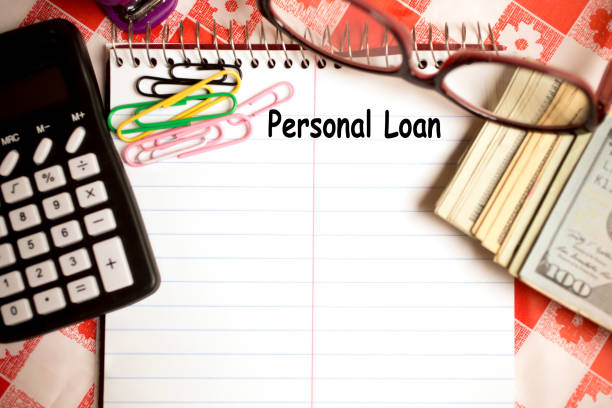If you’re looking to rebuild your credit, small personal loans can be an effective tool to get you back on track. While it may seem counterintuitive to take on new debt to improve your credit score, responsible use of a small personal loan can demonstrate good financial habits and help rebuild your credit over time. Here’s a step-by-step guide on how to use small personal loans to repair your credit effectively and responsibly.
1. Understand How Credit Works and Why It Matters
Before diving into the steps, it’s essential to understand the basics of credit and why it matters. Credit scores are calculated based on several factors, including payment history, credit utilization, length of credit history, types of credit, and recent inquiries. A good credit score is crucial for securing loans, mortgages, and even better insurance rates or job opportunities. Rebuilding credit is about improving your credit profile in these key areas, and a small personal loan can help with this if used carefully.
2. Evaluate Your Current Credit Situation
Start by checking your current credit report to understand where you stand. You’re entitled to one free credit report per year from each of the three major credit bureaus (Experian, Equifax, and TransUnion) via AnnualCreditReport.com. Reviewing your report will help you identify specific areas that need improvement, whether it’s missed payments, high balances, or a lack of credit diversity. Knowing these details will help you set realistic goals for rebuilding your credit.
3. Determine if a Small Personal Loan is Right for You
A small personal loan can be helpful for rebuilding credit, but it’s essential to assess your financial situation before taking one on. Here’s what to consider:
- Monthly Budget: Make sure you have enough income to comfortably cover the loan payments. Missing a payment could harm your credit even further.
- Amount Needed: Since you’re rebuilding credit, a modest loan amount (typically between $500 to $2,000) is often sufficient. Taking a small loan limits the risk while still giving you the benefits of a new credit account.
- Loan Purpose: Many lenders offer loans specifically aimed at credit building. Look for loans that offer flexible terms and no prepayment penalties, as these can make repayment easier.
If your budget and goals align, a small personal loan can be a powerful tool for rebuilding credit.
4. Shop Around for Lenders That Cater to Credit Rebuilding
Not all lenders are suitable for people with poor or limited credit histories. When shopping for a loan, look for lenders that specialize in helping borrowers rebuild credit. Here’s what to focus on:
- Credit Building Loans: Some lenders offer personal loans specifically for credit rebuilding. These loans often come with manageable terms and may report to all three major credit bureaus.
- Credit Unions: Many credit unions offer small personal loans with favorable terms to their members, even if they have less-than-perfect credit.
- Online Lenders: Numerous online lenders cater to borrowers looking to rebuild credit. Compare rates, terms, and fees across different lenders to find the best deal.
Interest rates on these loans may be higher due to the credit risk, but small loan amounts and manageable repayment terms can help minimize the cost.
5. Apply for the Loan and Review Terms Carefully
Once you’ve identified a lender, complete the application process. Be prepared to provide information on your income, employment, and financial history. During this stage, pay close attention to the loan terms:
- Interest Rate and APR: Ensure you understand the total cost of the loan. The APR reflects both the interest rate and any fees, giving you a clear picture of the cost.
- Repayment Term: Shorter repayment terms mean higher monthly payments but less interest paid over time. Choose a term that fits comfortably within your budget.
- Fees: Look out for any origination fees, late fees, or prepayment penalties. Ideally, choose a loan without prepayment penalties, allowing you to pay it off early without extra cost.
Review all terms before signing to ensure they align with your budget and financial goals.
6. Create a Payment Plan and Set Up Automatic Payments
Timely payments are critical to rebuilding your credit. Setting up a reliable payment plan is essential for demonstrating a positive payment history, which is the most significant factor in your credit score.
- Create a Monthly Budget: Ensure you can comfortably cover the loan payment within your monthly budget. Avoid taking on other new debt that could strain your finances.
- Set Up Automatic Payments: Many lenders allow you to set up automatic payments from your bank account, which helps prevent missed payments. Some lenders may even offer a slight interest rate reduction if you enroll in autopay.
If automatic payments aren’t an option, set reminders to ensure you make payments on time every month.
7. Make Payments on Time, Every Time
Consistent, on-time payments are the single most effective way to rebuild credit with a personal loan. Payment history makes up 35% of your credit score, so avoiding late or missed payments is crucial. Even one missed payment can damage your score, undoing the progress you’re trying to make.
If you encounter financial difficulties, contact your lender immediately to discuss potential solutions. Some lenders may offer deferment or forbearance options, which allow temporary payment relief without damaging your credit.
8. Monitor Your Progress and Adjust as Needed
As you make payments on your loan, monitor your credit regularly to track your progress. You can use free tools like Credit Karma, which provides credit score updates, or check your credit reports periodically. Monitoring your credit can also help you spot any errors or inaccuracies on your report, which could be negatively impacting your score.
If your financial situation improves and you’re able to pay off the loan early, consider doing so to save on interest costs. Many lenders offering credit-building loans won’t penalize you for early repayment, and paying off the loan responsibly will reflect positively on your credit report.
9. Consider Other Credit Building Options as Well
While a small personal loan is a great tool for rebuilding credit, you may want to consider additional methods to strengthen your credit profile:
- Secured Credit Cards: These cards require a security deposit and are easier to qualify for, making them a helpful option for building credit.
- Credit Builder Loans: Some lenders and credit unions offer loans specifically designed to build credit, where payments go into a savings account, and you receive the funds at the end of the term.
- Authorized User Status: If you have a trusted friend or family member with good credit, consider asking them to add you as an authorized user on their credit card. This can help improve your credit if they make regular on-time payments.
Combining these strategies with your personal loan can accelerate your credit rebuilding journey.
Final Thoughts
Rebuilding credit takes time and consistent effort, but using a small personal loan wisely can significantly improve your credit profile. By making on-time payments, keeping the loan manageable, and monitoring your progress, you can make steady gains in your credit score and regain financial stability. Remember, rebuilding credit is a marathon, not a sprint. With patience and responsibility, you’ll be on your way to a stronger credit future and the financial opportunities that come with it.

